Another Syrian Child Goes to Bed Hungry
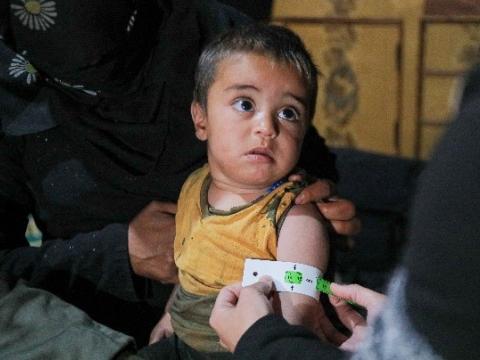
War is not the only reason mothers lose their children. In Syria, in the last three years, 3,163 people , including children, died as a result of COVID-19. Bombings and unexploded remnants of war have left at least 30,000 mothers to mourn the loss of their children. Even now, the lack of food steals the lives of these children.
Malnutrition is spreading like wildfire across Syria. Almost 610,000 children suffer from growth deficiency. This’s the reality when the war left no crumbs on people’s tables. Now, they have nothing to eat anymore.
No Mother Should Wonder if her Children Would Wake Up Tomorrow
This’s a mother’s story who protected her son from war, instabilities even a recent devastating earthquake. But she didn’t imagine that lack of food would push her little child to the verge of death.
“My son’s health began deteriorating. He was always sick. One day pimples and rash appeared on his body, his feet were freezing and he was swelling,” tells Salam* Zaid’s* mother.
The mother was frightened and didn’t know what to do. Zaid was “looking like a skeleton when at one year old. I began hallucinating that I would wake up and he wasn’t there next to me,” she shares.
Later, Salam recalls Zaid’s health history, “I didn’t know his situation was dire. I stopped breastfeeding him when he was three months old”. Salam was going through a traumatic experience after her sister’s sudden death. It was emotionally terrorising she couldn’t even speak about it. Suddenly, caring for her child became draining. This isn't a mere observation in Syria, worsening mental health and lack of proper support are leading to higher rates of suicides among the population and difficulties in carrying out daily tasks.
She later decided to use formula but that wasn’t easily found in Syria. The formulas were disappearing and the ones available were too expensive to purchase. Meanwhile, her child was getting frailer by the second. Eventually, she used corn-starch to feed her child. “I added water too, I heard from other mothers it’s harmless,” she tells.
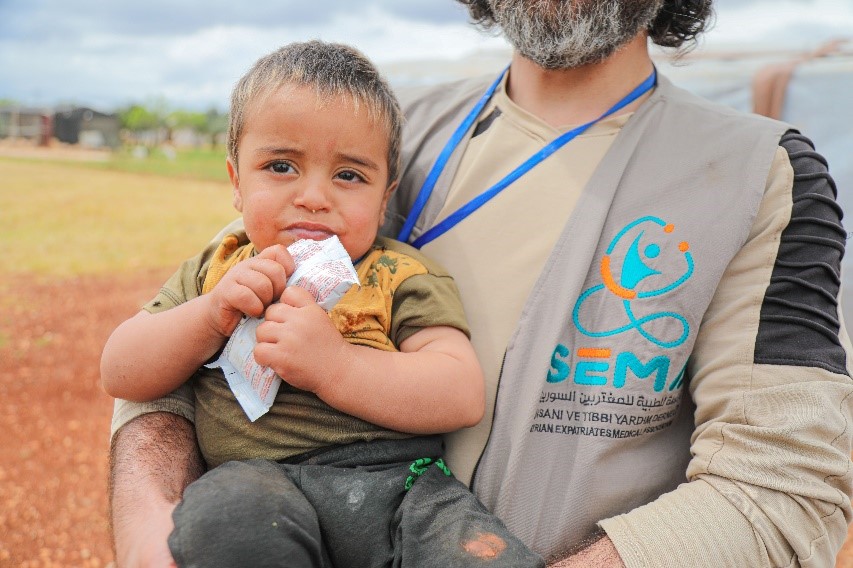
Zaid received medical care to recover from severe malnutrition.
A Ray of Hope for Zaid
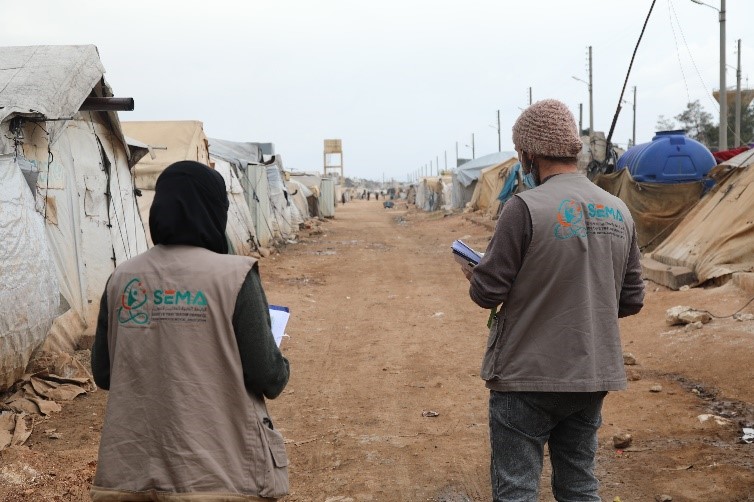
Our partner in Syrian displacement camps conducting screening services for possible malnutrition cases among children.
Meanwhile, World Vision’s partner, SEMA was conducting malnutrition screening services in that displacement camp. They noticed Zaid’s situation. “They were distributing peanut butter paste. I hoped getting some for my children so they visited me and checked on my son,” she shares.
They insisted that Zaid must seek care at a health centre but the mother couldn’t, “I suffered from personal reasons, I couldn’t go”. That didn’t stop the team from checking on Zaid daily and reminding the mother about visiting the hospital. She finally agreed.
The doctor immediately noticed he had poor diet during the first minutes of the. The child received the care his body desperately required for a week. “He gained nine kilos [after finishing the treatment], I was delighted! SEMA kept visiting us at the hospital until we went home. They even came back to check on us again.”
Recovery is a Long Road for Zaid
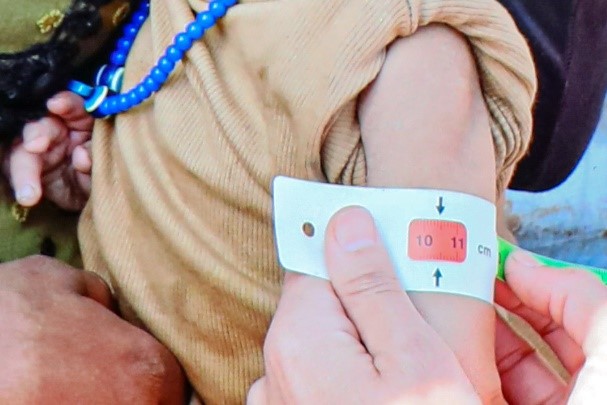
Before the treatment to tackle malnutrition.
Finally Salam was celebrating her child’s recovery, when all repated. “I called Bana* [SEMA worker who monitored Zaid’s case]. She advised me to immediately go to the hospital. The swelling affected his body and caused dehydration”. Minutes later, Zaid passes out. These excruciating moments left the mother frantic. Thankfully, she received a referral from SEMA where Zaid stayed in the ICU for four days. After being discharged, SEMA revisited the family.
Slowly, they introduced solid food, like boiled eggs and potatoes, to his diet. Then the screening day came. When the the device [in photo on the right] showed green, that was the happiest day for Salam and the health team. “If I refused getting my child to the health centre, I would’ve lost him,” she reflects on her initial decision not to go to the hospital.
“I feel joyful when he’s healthy. He’s walking his first steps. I could’ve done better. SEMA, didn’t leave my side and they were a family to me,” Salam ends.
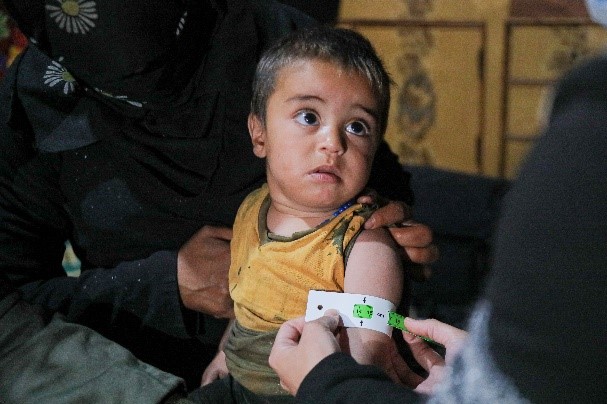
Zaid, after receiving the medical care for severe malnutrition.
The nutrition project supports 75,000 people including pregnant/ lactating women and children with nutrition services, awareness sessions and even referrals for support. Zaid is one of the 617 children who exhibited severe/ moderate malnutrition and required medical support.
*Name has been changed to protect identity.